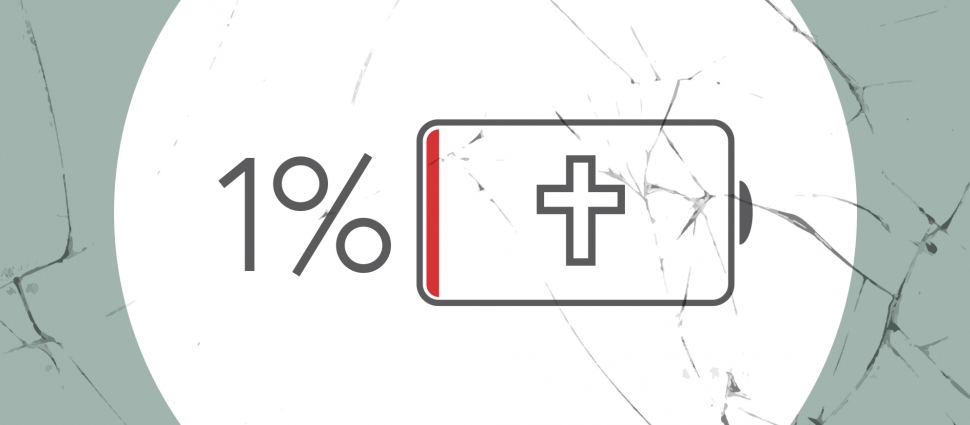What Happened to Rest in the Church?

“Remember the Sabbath day, to keep it holy.”
The service ended a couple of minutes ago. The momentary silence of the sanctuary was punctured by the children, whose failed attempts to whisper quickly rose to shouts as they joined friends. A gentle buzz of pleasantries then filled the ambient backdrop. Stewart chatted for a couple of minutes with his young couple friends that he sat with, then he headed for the door.
“Stewart! Good to see you!” Roger called out to him a few feet from the exit. Helplessly, like a prisoner caught in the searchlight, Stewart turned toward Roger and forced a smile.
“Are you coming to the church work day this Saturday? We’ll have donuts!”
“No, sorry, I can’t make it,” Stewart shuffled his feet.
“Ah, okay,” Roger responded, with obvious disappointment. He lowered his pen, which had been eagerly hovering over a list of volunteer names. “Well, next time.”
Stewart had nearly escaped when Mary burst out the door behind him, hailing him down.
“Stewart, Stewart!” Mary panted slightly as she jogged over. “Glad I caught you. We’ve got a women’s speaker coming this Wednesday night. Would you be able to help out greeting at the door, and ushering?”
* * *
If this scenario sounds familiar, it’s probably time your church revisits the fourth commandment. The biggest problem Christians have with honoring the Sabbath isn’t dinner, a movie, and shopping on Sunday evening; it’s that the church respects your need to rest everywhere except when it comes to church.
In the church, more is always more. More event participation equals more holiness. In church leadership, more events equals more impact. These are y = x, straight up diagonal graphs with no blips, no cap, no ceiling. There’s never an event planned called: “Stay home and be with your family and friends night.” Of course you’re doing that. The church assumes you’re doing that.
Except we’re not doing that.
The Ministry of Rest
Pre-pandemic, Americans were probably doing less resting at home than any people at any point in history. That was one of the beautiful effects of the pandemic, and many recognized it almost at once. Suddenly, my calendar is clear. Suddenly, I realize there are a bunch of things I was doing just to keep doing them. With society opening back up, the church is now primed to care well for people—or to slip uncritically back into old habits. Will we succumb to the pressure to ramp up as many programs and events as we can, as fast as we can?
Don’t get it wrong: programs can be good, and events can be good, but one of the most remarkable and refreshing ministries the church can offer in our age is the ministry of rest. Rest could be one of the single most powerful ways the church can shine counter-culturally. Everything around us screams that success is marked by busyness. Success means a full calendar. Success means you can never put the phone down, you can never unplug — everyone else needs you too much.
What Is the Sabbath?
At some point, in every rightly-intentioned Sabbath observance, there’s a struggle against a prideful question: “What will happen if I don’t…?” But the heart of the Sabbath commandment is that you’re actually not that important. You can rest. You can chill. You can stop working, and it will be okay, because God’s got it under control. The Sabbath was not intended to be a list of regulations of things to avoid, nor was it to be a free pass to loaf on your couch in your pajamas all day. The Sabbath is about redirecting our energies to focus on celebrating and enjoying God, instead of striving and grasping.
True Sabbath rest is not merely a negation, or an absence of something planned. If it were, you’d run the risk of idleness and its accompanying temptations. But the church also gets it wrong when it believes that everything that happens in the church building, or is run by church staff, automatically constitutes as “holy rest.” The church providing rest could—yes, could—mean thinking strategically about creating a life-giving, refreshment-producing event. But it could also mean church leadership has to humbly wrestle with the question: “What will happen if I don’t…?” Churches must recognize that its members may, in fact, still be quite capable of “being the church” without leadership dictating the exact time, place, and activities this involves. If we want to see ministries multiply, it starts with respecting people (and the Holy Spirit) enough to believe it can often happen better without direct oversight. Holiness is not linked to hours spent on the church grounds. That’s the philosophy of rest, and communicating that philosophy may be the most important way the church helps people rediscover the joy of Sabbath.
Read previous articles in this series here.
Justin Poythress (MDiv, WTS) is Assistant Pastor at Westminster Presbyterian Church in Fort Myers, FL. He blogs regularly at Time & Chance.
Related Links
Podcast: "Keep the Sabbath Holy"
"A Weekly Honeymoon" by Stephen Spinnenweber
"Through the WCF: Chapter 21.8" by Derek Thomas
"The Exception and the Rule" by Nick Batzig
Entering God's Rest by Ken Golden
(also available digitally here)




